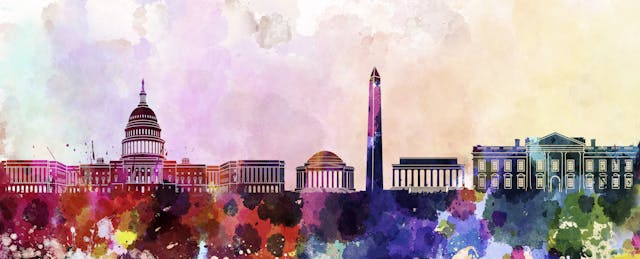It is with great enthusiasm, and relief, that so many educators looked forward to the arrival of the Biden Administration and the new U.S. Secretary of Education, Miguel Cardona. With their leadership, the department will finally provide programs and funding for reopening schools across the country. And while the new administration has no bigger challenge than fighting COVID-19, we should also take a moment to consider the other critical challenges that American education faces.
For anyone paying attention this year, we were reminded of a valuable civics lesson: States and cities must balance their budgets, but the federal government can print more money when it is broke. We heard much about these funding needs as the nation’s governors pleaded with the federal government for test kits, PPEs and ventilators to fight COVID-19. So, before the Republicans in Congress start worrying about federal budget deficits again, the Department of Education should pour money into our country’s beleaguered school systems. Here are a few suggestions for the new Secretary of Education and his team to consider that would substantially impact critical issues in American education.
First, the Department should team up with AmeriCorps, as well as innovative preparation programs such as Teach for America (TFA) and TNTP (formerly the New Teachers Project), to fund the recruitment and placement of tens of thousands of tutors for America’s public schools. (It is also a no brainer to also call back thousands of retired teachers as classroom tutors.) AmeriCorps offers scholarships for young Americans who commit to one year of public service and there is no better place for them to practice service in 2021 than in public schools. Additionally, TFA and TNTP know how to recruit and quickly prepare educators. The department could agree to fund education master’s degrees for service in this American Tutors Program, thereby also augmenting the country’s teacher cadres for years to come.
Second, evidence was clear for years that many American students should be in school for all 12 months, from 8 a.m. to 6 p.m. Add to that, the growing evidence that 2020 may be chalked up as a lost academic year, particularly for low-income children. Furthermore, showing they must be open, school systems stepped up and delivered meals to low-income students in 2020. From now on, school buildings should be open all day and all year, serving as centers for education, delivery of meals and healthcare for the community. Let’s use this crisis to finally plow under the agricultural schedule of 7:30 a.m. to 3 p.m.
The extra hours and days per year in the schools should not be staffed by our already exhausted teachers. Instead, the hours should be filled with subject tutors plus art, music, physical education, stay healthy programs and meals, all funded by the Department of Education when necessary.
The third priority should be the funding of civics instruction in public schools. The events of January 6 showed us that millions of citizens, as well as a few members of Congress, have a limited understanding of how American elections and protests work. The department should fund a five-year program to support civics courses and magnet programs in the public schools.
Finally, I applaud the Biden Administration’s plan to make community colleges tuition free. However, let’s not allow the elite private universities with large endowments off the hook. This is the year to call them on their commitments to social justice in a big way. The Biden Administration should ask each of the top 100 private universities—for the foreseeable future—to give all entering low and low middle income freshmen free tuition, room and board for one year. Getting their first-year free of charge will also be a boost for the retention of these students. Deserving students who persist after the first year, could qualify for traditional student aid. President Biden and Secretary Cardona should invite university leaders to Washington for a serious discussion of a First-Year Free college enrollment plan.
President Biden, Secretary Cardona and their teams have a gigantic set of challenges ahead in 2021, starting with COVID-19. However, if this country does not use this moment to attack some of the other critical problems facing American education, a generation of learners may never academically recover.


